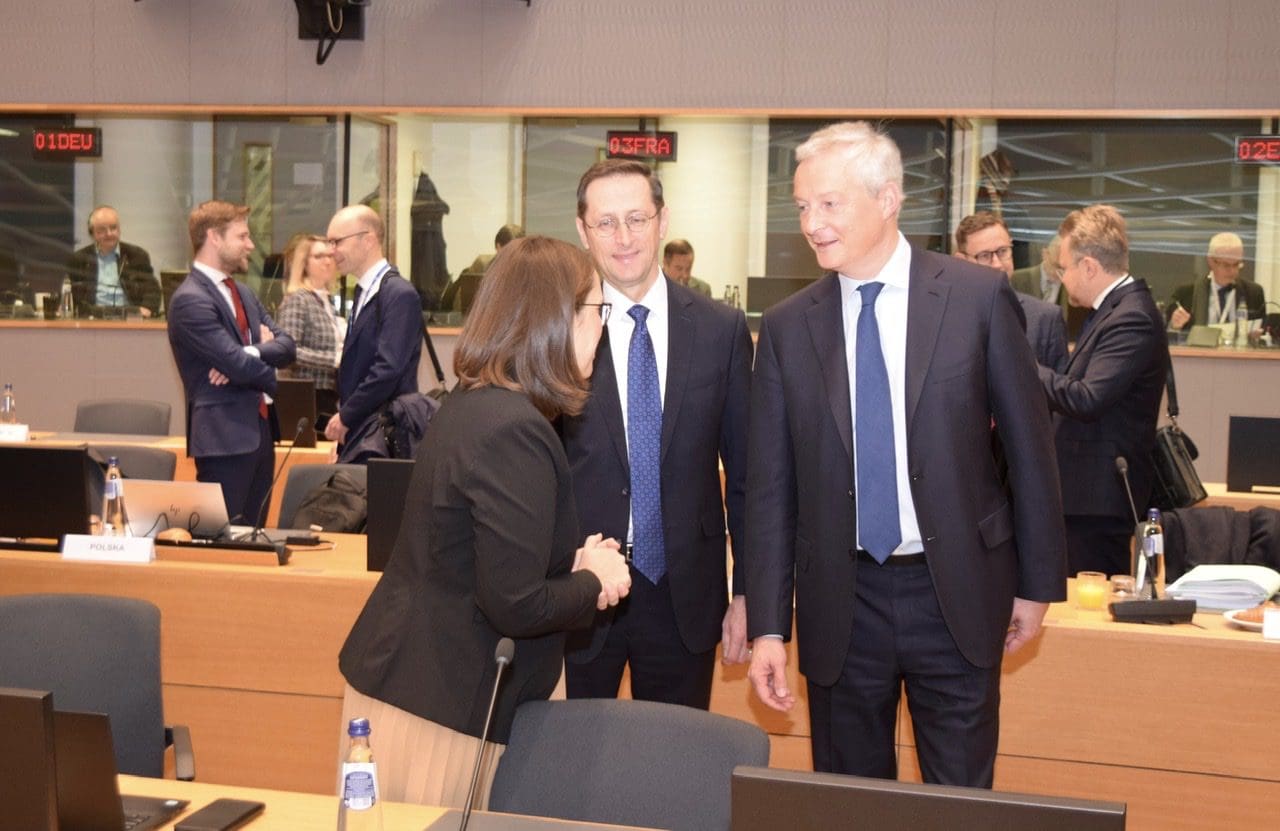The ‘Vote’ that Never Happened
The Economic and Finance Ministers of EU Member States met in Brussels on Tuesday, but the EU aid package to be given to Ukraine was not put to a vote at the ECOFIN session. The issue of the macro-financial support (MFA) to be provided to Ukraine in 2023 and the amendment to the European Union’s multi-annual financial framework (MFF) for the years 2021–2027 were taken off the voting agenda. The finance ministers did vote on the amendment to budget regulations, however, which would allow the EU to borrow money for Ukraine as part of its diversified funding strategy, item three of the legislative package on the €18 billion in financial assistance. Hungarian Finance Minister Mihály Varga abstained from voting.
The abstention was confirmed in a Finance Ministry press release. According to the statement, the 18-billion-euro aid for Ukraine was not on the agenda of the ECOFIN meeting on Tuesday, as opposed to what was falsely reported in the media. Such assertions are false, the statement nailed down. The Hungarian government has made it clear on multiple occasions that it opposes any joint borrowing, therefore the finance minister’s vote was not unexpected, the statement remarked
This was also stressed by PM Orbán during the Hungarian Permanent Conference (MÁÉRT) meeting in early November: ‘Hungary will not agree that the nations of the European Union lend money to Ukraine jointly.’ The European Commission has suggested providing Ukraine with 18 billion euros in discounted long-term capital market loans over the course of a single year.
Orbán: No to a Community of Debt
‘The price of the war goes beyond simply having to reconstruct what is currently being destroyed. It has come to light that the functioning of the Ukrainian state is problematic. Ukraine went to the West, the European Union, for financial assistance since it is unable to pay pensions or maintain its infrastructure. We should provide the Ukrainian state with 18 billion euros a year merely to keep it running. The EU intends to finance all of this through a single loan, transforming itself into a group of states that are jointly indebted’, the Prime Minister of Hungary said on public radio last Friday.
‘Instead of being a community of collaborating member states, this would turn us into a community of debt that even our future generations would have to pay off. We oppose this because it will increase the debt of the individual states without assisting the Ukrainians. We must distribute the funds intended to aid Ukraine equally among ourselves; otherwise, we cannot support this,’ he emphasized.
A Misconstrued the Story
From the statement given by the ministry, it is clear that press reports published on the issue were deeply problematic. The distorted coverage may have been the result of a misunderstanding of what was going on; however, it is the responsibility of the press to accurately report facts. The reality is that while the Orbán government is opposed to taking out a joint loan of the staggering amount of 18 billion euros, it is not against helping Ukraine. The idea proposed by the prime minister would only mean that countries that are able to ‘put more into the pot’ would do so, while those who are already in debt, or have a far smaller GDP than others, would have to pay less. Taking in consideration the immense economic pressure caused by the war and sanctions on different countries in the EU, this proposal would make the most sense. Should the joint loan proposal be pushed through, many of the member states would find themselves in a far worse situation than before, which is hardly a desirable outcome.
Related Articles:








